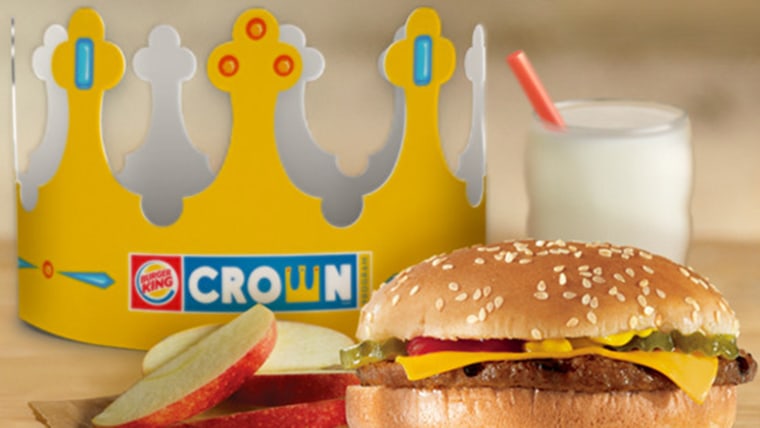A proposal that would force New York City’s fast food restaurants to make their kids-themed meals healthier might actually have some benefit, researchers reported Monday.
The so-called Happy Meals bill seeks to lower calories, fat and sodium in meals marketed to kids using toys and other prizes.
It’s the latest in a series of attempts in the city to get restaurant outlets to offer less-fattening options. An appeals court struck down one bill that would ban supersized sodas, but New York City has managed to ban trans-fats, which raise cholesterol, and has proposed requiring warning labels on extremely salty items. The U.S. Food and Drug Administration is also working to phase out trans-fats.
The “Healthy Happy Meals” bill would require that these offerings provide no more than 500 calories; that less than 35 percent of those calories come from fat and less than 10 percent from saturated fat; that they be low in sugar and sodium and include a serving of fruit, vegetable or whole grains.
Research has shown the trans-fat and supersized soda legislation can, or could have had, a positive effect. Brian Elbel and colleagues at New York University checked to see what would happen if kids’ meals were made healthier.
They looked at the cash register receipts from more than 350 people who bought actual meals for 422 kids at Burger King, Wendy’s and McDonald’s outlets across New York City and part of New Jersey.
"The industry could remove children's meals altogether, forcing children to order the larger portions from the adult menu.”
On average, each meal purchased for a child had 600 calories and was just over the fat limit with 36 percent of calories coming from fat.
If the bill took effect and people continued to buy the same meals, calories would drop by 9 percent. The kids would get 10 percent less sodium and 10 percent fewer calories from fat, the researchers report in the American Journal of Preventive Medicine.
"While 54 calories at a given meal is a small reduction, small changes that affect a wide number of people can make a large impact," Elbel said in a statement.
Americans kids eat an awful lot of fast food, and those few calories could add up quickly, the researchers noted.
“No single policy can singlehandedly eliminate childhood obesity. Policymakers could consider broader restrictions on marketing, similar to legislation in Chile that banned any use of toy premiums in children’s meals in 2012,” the researchers added in their report.
Fast-food restaurants might not comply in expected ways, said Marie Bragg of New York University, who worked on the study.
"For example, the industry could remove children's meals altogether, forcing children to order the larger portions from the adult menu,” she said.
The bill, currently sponsored by city council member Ben Kallos, has been in and out of consideration since it was originally introduced in 2011 by former council member Leroy Comrie.
Dr. Tara Narula , associate director of the Cardiac Care Unit at Lenox Hill Hospital/North Shore LIJ Hospital, supports the bill. “We fight for the best schools, the best programs, the best environment. What we shouldn’t have to fight so hard for is healthy food in our restaurants,” she said in a statement.
“For far too long, fast-food chains such as Wendy’s and Burger King have been using toy giveaways to lure children to meals of cheeseburgers, French fries, and sodas and other meals of poor nutritional quality,” agreed Margo Wooten, who directs nutrition policy at the Center for Science in the Public Interest.
The group has found fast-food kids' meals flunk U.S. government standards virtually every single time.
